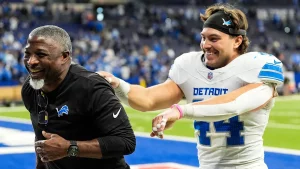Roy Hodgson has opened up on his brief time managing Liverpool during the 2010–11 campaign.

When Roy Hodgson took over as manager of Liverpool, he acknowledged receiving warnings.
The successful tenure of the former England manager at Fulham led to his replacement as Rafa Benitez in the summer of 2010. But after a lacklustre tenure that began in October of the previous year when FSG acquired the team, he was fired in January of 2011.
At the time of his arrival, the club was owned by the doomed owners, Tom Hicks and George Gillett, but by then, Martin Broughton had been appointed Chairman with the intention of aiding with the club’s sale.
Furthermore, Hodgson acknowledges that he was forewarned by managing director Christian Purslow and Broughton about the anticipated changes at the club after his arrival.
“Liverpool’s a fantastic football club and it’s a real honour to be invited to be the manager of Liverpool,” he stated to TNT Sports. “I guess they chose me because it followed their success with Fulham.
“The ownership shift undoubtedly prevented me from receiving an invitation to take over as the club’s manager at the most advantageous time. Due to the ownership transition, the club wasn’t in the same solid position as it is now.
To be fair, Martin Broughton, who was coordinating the takeover with Christian Purslow, acknowledged that there was a new group coming in, so things might not be as simple as they seemed. They both made it obvious that they were in command and that the appointment was being made right away.
Hodgson, meanwhile, acknowledges that he didn’t win enough games to maintain his position as manager of Liverpool. Nonetheless, he acknowledged that he had no problems with his playing group at the time and that it was not too difficult for him to recover when the Reds fired him.
“Obviously, our poor start was the issue,” he remarked. “For Liverpool, we were down in mid-table and even below mid-table because we didn’t win enough games.
Sadly, you don’t make it through that, particularly since Kenny (Daliglish) was waiting in the wings to assume over. I accepted my dismissal there with greater optimism than I did with Blackburn.
It stung simply in the sense that I was unhappy not to have had a somewhat different opportunity to make a difference, a transfer window with some extra cash to spend, and more time to spend with the players.
But that’s what all bosses say. However, I had no genuine complaints about the players; they seemed fine. They attempted to assist me as best they could, but as a football manager, you can’t achieve what we were planning to do and we lost games. You’re unable to lose.







